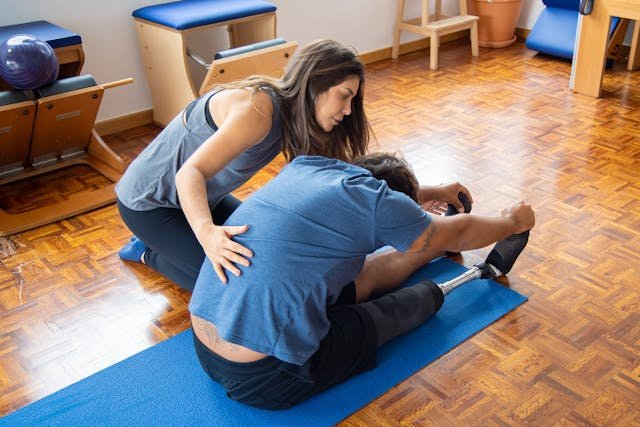For a child, a prosthetic limb should feel like a natural extension of their body, not something that causes pain or limits movement. But many children struggle with discomfort, irritation, or difficulty adapting to their prosthetic limb. Whether it’s a tight fit, skin irritation, or trouble with balance, discomfort can make it harder for kids to use their prosthetic with confidence and ease.
The good news is that with proper adjustments, the right materials, and ongoing care, prosthetic limbs can be made much more comfortable. At Robobionics, we believe that no child should feel restricted by their prosthetic limb. This guide will help parents and caregivers understand how to ensure maximum comfort, improve usability, and make everyday life easier for children with prosthetics.
Ensuring the Perfect Fit for a Natural Feel
A prosthetic limb must fit securely and comfortably to avoid pain and irritation. If it is too tight, it can cause pressure sores and restricted blood flow. If it is too loose, it can lead to chafing, instability, and difficulty with movement.
Regular Check-Ups and Adjustments
Children grow quickly, and a prosthetic that fit well a few months ago may feel tight or awkward today. Frequent check-ups with a prosthetist help ensure that the fit remains comfortable and functional. Small adjustments, such as socket modifications or strap changes, can make a big difference in preventing pain and discomfort.
When children start complaining of soreness, redness, or difficulty wearing their prosthetic for long hours, it’s often a sign that an adjustment is needed. A well-fitted prosthetic should allow for easy movement without causing strain on the residual limb.
Customizing the Socket for Better Comfort
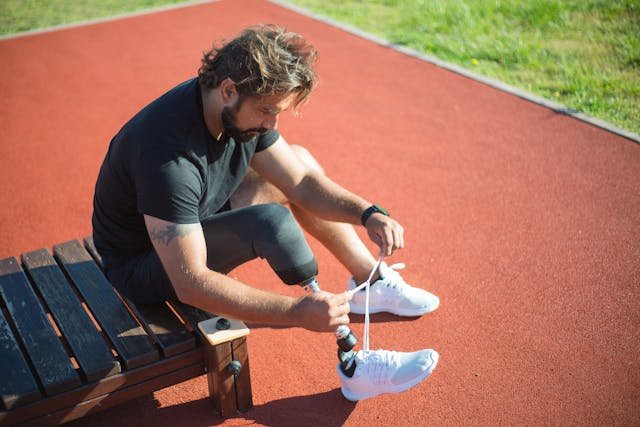
The socket is the part of the prosthetic that connects to the residual limb. If it doesn’t match the child’s limb perfectly, it can cause pressure points and discomfort. Advanced 3D scanning and custom molding techniques can create a precise, personalized socket that fits the child’s limb shape perfectly, reducing friction and enhancing comfort.
Sockets can also be adjustable, allowing small modifications over time as the child grows. This prevents the need for frequent prosthetic replacements and ensures continued comfort.
Choosing Lightweight Materials for Ease of Use
Heavy prosthetics can strain a child’s muscles and make movement tiring. Modern prosthetic limbs are now made with lightweight materials like carbon fiber and high-strength plastics, making them easier to wear for long hours. A lighter limb reduces fatigue and improves mobility, allowing kids to move more freely and naturally.
Using the Right Liner to Prevent Skin Irritation
A prosthetic liner sits between the prosthetic socket and the child’s skin, acting as a protective barrier. A well-chosen liner improves comfort, prevents blisters, and reduces pressure points.
Finding the Best Material for Comfort
Liners come in different materials, including silicone, gel, and foam. Silicone is soft and durable, while gel liners provide extra cushioning for sensitive skin. Some children prefer fabric-covered liners, which reduce heat buildup and sweat accumulation. The best choice depends on the child’s skin sensitivity and activity level.
Keeping the Liner Clean and Fresh
A dirty or sweaty liner can cause itching, irritation, and even infections. Daily cleaning with mild soap and water keeps the liner hygienic and odor-free. Parents should check for signs of wear and tear and replace liners when they start to break down or lose shape.
Rotating Liners for All-Day Comfort
Some children benefit from having multiple liners that they can switch between during the day. This helps prevent moisture buildup and keeps the skin dry. A fresh, dry liner can significantly improve comfort, especially in hot weather.
Managing Temperature and Moisture for Better Wear
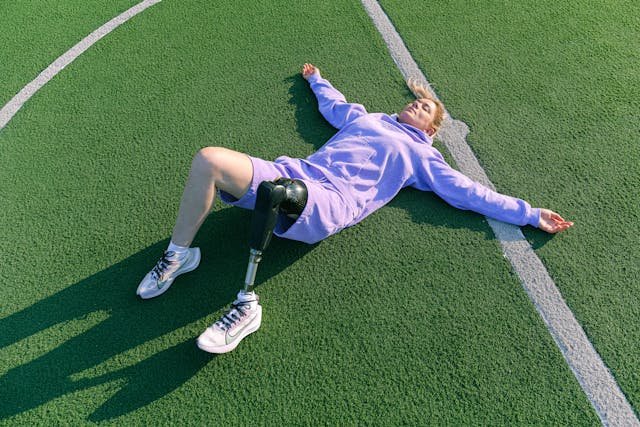
Heat and sweat can make a prosthetic uncomfortable, sticky, and irritating. Managing temperature and moisture is key to reducing discomfort and keeping the prosthetic wearable for long periods.
Reducing Heat and Sweat Buildup
Children often play outdoors, and excessive heat can cause sweat buildup inside the prosthetic socket. This leads to slipping, irritation, and unpleasant odors. Breathable liners, moisture-wicking socks, and cooling sprays can help keep the limb dry.
Using Prosthetic Socks for Extra Comfort
Prosthetic socks help absorb moisture, reduce friction, and provide a snug fit. They come in different thicknesses, allowing for minor adjustments in fit when needed. Some socks are made with antibacterial fabric, which helps prevent skin infections and irritation.
Ensuring Proper Ventilation for the Residual Limb
Encouraging children to take short breaks from wearing their prosthetic allows their skin to breathe. If possible, letting them remove their prosthetic for a few minutes every few hours can reduce heat buildup and irritation, keeping their limb cool and comfortable.
Improving Mobility and Reducing Strain
A comfortable prosthetic limb should allow for smooth, natural movement without causing strain or fatigue.
Strengthening Muscles for Better Prosthetic Use
Wearing a prosthetic requires different muscles to work harder than usual. If a child’s muscles are not strong enough, they may feel tired or sore after wearing the prosthetic for long hours. Exercises that strengthen the residual limb and core muscles can improve comfort and endurance.
Adjusting the Alignment for Proper Posture
A prosthetic limb should be aligned correctly to ensure even weight distribution. Poor alignment can cause back pain, hip strain, and difficulty walking. Regular adjustments help ensure that the limb works in harmony with the rest of the body, reducing discomfort.
Encouraging Movement in a Fun Way
Children may feel hesitant to use their prosthetic, especially if it feels strange or uncomfortable at first. Making movement fun and engaging, through sports, dance, or interactive therapy, helps them get used to their limb naturally. The more they move, the more comfortable and confident they become.
Helping Kids Emotionally Adjust to Their Prosthetic
Comfort is not just about physical fit—it’s also about how a child feels about their prosthetic. Emotional acceptance plays a huge role in how comfortable they are wearing it daily.
Encouraging a Positive Attitude Toward the Prosthetic
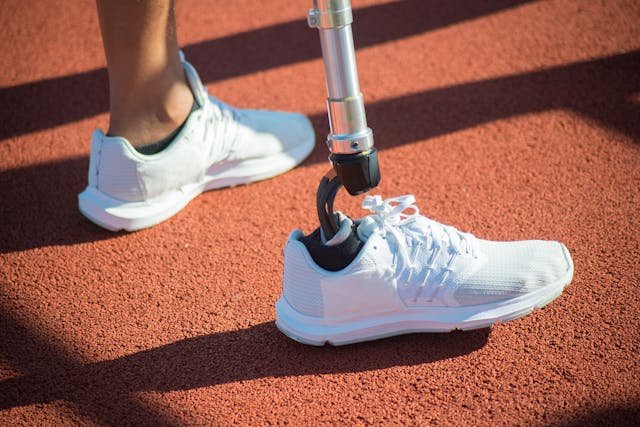
Some children may feel self-conscious about their prosthetic or worry about how others see them. Encouraging them to embrace their prosthetic as a unique part of who they are helps build confidence. Letting them choose colors, patterns, or fun designs makes the prosthetic feel more personal and exciting.
Helping Them Navigate Social Situations
Children may face curious questions from classmates or friends. Teaching them simple, confident responses helps them feel more in control and less anxious about social interactions. Connecting them with other kids who use prosthetics can also boost their self-esteem and sense of belonging.
Providing Emotional Support and Encouragement
Parents play a key role in helping children feel comfortable and confident with their prosthetic limb. Encouraging words, celebrating small victories, and reminding them of their strength and resilience make a big difference in how they adapt and thrive.
Regular Assessments and Growth Adjustments
Children grow quickly, and a prosthetic that once fit perfectly can suddenly start feeling tight, awkward, or uncomfortable. Regular assessments with a prosthetist help ensure the limb continues to fit properly and that necessary adjustments or upgrades are made in time.
Monitoring Growth and Fit Changes
If a child starts limping, feeling discomfort, or avoiding wearing their prosthetic, it could be a sign that an adjustment is needed. A prosthetist can fine-tune the fit, change the socket size, or make minor modifications to improve alignment and comfort.
For younger children, prosthetic upgrades may be needed every 6 to 12 months, while older children might need adjustments every 1 to 2 years. Regular check-ups ensure that issues are caught early, preventing long-term discomfort or posture problems.
Expanding Prosthetic Capabilities for Different Activities
As children grow, their interests change. Some may become interested in sports, dance, or other hobbies that require different types of movement. Prosthetics should evolve to support their lifestyle, whether it’s adding a sports-specific attachment, improving flexibility, or enhancing grip strength.
For children who swim frequently, waterproof prosthetics allow them to enjoy water activities without limitations. For active kids, high-performance limbs can withstand greater impact and provide better support. Customizing their prosthetic to match their interests ensures they can fully participate in everything they love.
Preventing Long-Term Discomfort and Strain
A prosthetic limb that is not regularly adjusted can cause unnecessary strain on the body. Poor alignment can lead to back pain, hip problems, or muscle fatigue, making movement more difficult. Regular assessments help ensure that the child’s posture, weight distribution, and movement mechanics are correct, reducing stress on other body parts.
Encouraging Active Use Through Fun and Engagement
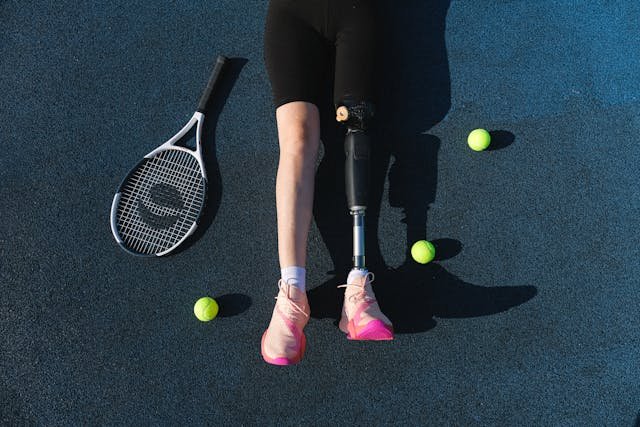
Comfort isn’t just about fit and materials—it’s also about how natural the prosthetic feels in daily life. The more a child uses their prosthetic in different situations, the more comfortable and confident they become.
Making Movement Fun and Engaging
If a child hesitates to use their prosthetic limb, they may need more engaging activities that encourage movement. Sports, dancing, obstacle courses, or even video games that require physical activity can help them adapt to their prosthetic naturally.
Gamified rehabilitation exercises, such as virtual reality-based therapy or interactive challenges, make practicing prosthetic skills exciting rather than frustrating. The goal is to turn movement into a positive and enjoyable experience.
Building Muscle Strength for Better Comfort
Using a prosthetic limb requires different muscles to work harder than before. If these muscles are not properly developed, a child may experience fatigue, soreness, or difficulty wearing their prosthetic for long hours.
A simple daily exercise routine can improve muscle strength, endurance, and overall comfort. Activities like stretching, resistance training, or yoga can reduce strain and improve posture, making the prosthetic easier to wear for extended periods.
Encouraging Social Inclusion and Confidence
Children with prosthetic limbs may feel self-conscious about participating in group activities. Encouraging them to join sports teams, clubs, or peer groups can help build confidence and social skills. Seeing other children with prosthetics thriving in different activities reinforces the idea that they are just as capable as anyone else.
Ensuring Emotional Well-Being for a Comfortable Experience
Physical comfort is only part of the equation—emotional well-being plays an equally important role in how comfortable a child feels with their prosthetic.
Creating a Supportive Home Environment
Children take cues from their parents. If a parent treats the prosthetic as a normal part of life, the child is more likely to accept it as a natural part of themselves. Talking openly, answering questions, and encouraging independence can help them feel confident and empowered.
Letting children choose designs, colors, or accessories for their prosthetic can also make it feel more personal and fun, reinforcing a positive attitude toward using it.
Helping Them Navigate Social Situations
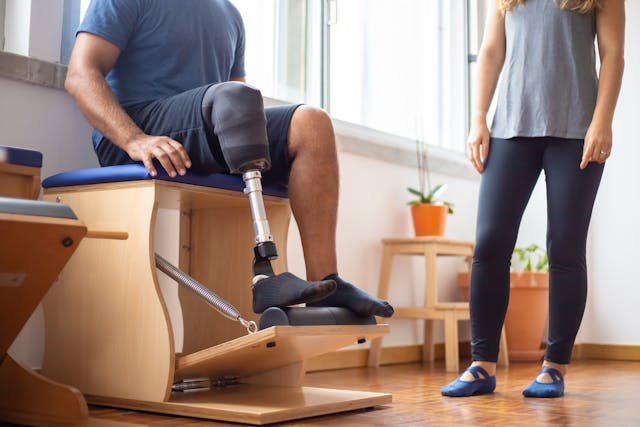
Many children worry about what others will think of their prosthetic limb. Teaching them how to respond confidently to questions or stares can reduce anxiety. Practicing simple, upbeat answers can make them feel in control of the conversation.
For example, if someone asks about their limb, they might say:
- “It helps me do everything I love!”
- “I got a cool upgrade!”
- “This lets me run faster than ever!”
Helping children develop a strong sense of self-confidence makes social situations less stressful and more enjoyable.
Seeking Professional Support When Needed
Some children struggle with the emotional aspects of wearing a prosthetic, especially if they feel different from their peers. If they show signs of frustration, sadness, or withdrawal, seeking counseling or peer support groups can be helpful.
Meeting other children with prosthetic limbs can be incredibly reassuring. It helps them see that they are not alone and that many others have overcome the same challenges.
The Role of Technology in Making Prosthetics More Comfortable
With advancements in prosthetic technology, materials, and design, children today have access to lighter, more adaptable, and more personalized prosthetics than ever before.
The Rise of 3D-Printed and Customized Prosthetics
Traditional prosthetics often require multiple fittings and adjustments to achieve the perfect fit. However, 3D printing technology has made it possible to create precise, personalized prosthetic limbs that are lightweight, flexible, and highly comfortable. These prosthetics can be customized to match a child’s limb shape perfectly, reducing pressure points and improving overall fit.
At Robobionics, we specialize in 3D-printed prosthetics that offer a better fit, enhanced durability, and reduced weight, making them more comfortable for daily wear. These prosthetics also allow for quicker adjustments, ensuring that the child never has to struggle with an uncomfortable limb.
Smart Prosthetics with Enhanced Comfort Features
Innovations in smart prosthetics have introduced sensor-driven limbs that automatically adjust grip strength, flexibility, and movement based on the child’s needs. Myoelectric prosthetics, which respond to muscle signals, allow children to use their prosthetic more intuitively, reducing strain and effort.
Newer prosthetics are also designed with shock-absorbing materials and self-adjusting sockets, which minimize discomfort and provide a more natural feel during movement. These innovations are making prosthetics more user-friendly, reducing the discomfort that some children experience with traditional designs.
Adaptive Attachments for Different Activities
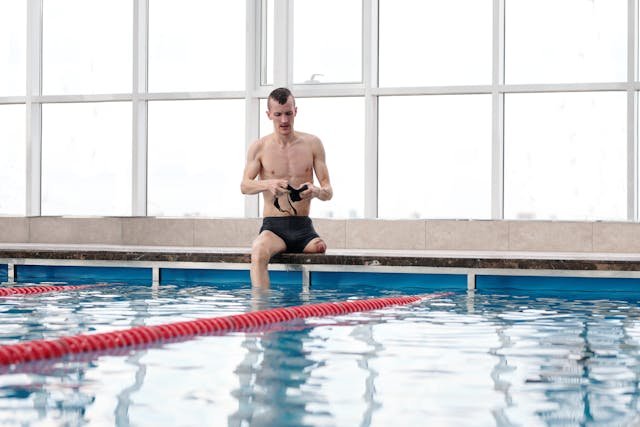
Some children may need different prosthetic attachments for specific activities, such as sports, music, or art. Adaptive prosthetics now come with interchangeable parts, allowing kids to switch between a running blade, gripping hand, or swimming attachment as needed. These specialized designs ensure that comfort is maintained while supporting a child’s active lifestyle.
Partnering with Experts for Long-Term Comfort and Support
Ensuring a consistently comfortable prosthetic experience requires ongoing support from prosthetists, therapists, and parents who work together to monitor fit, functionality, and emotional well-being.
The Importance of Working with a Skilled Prosthetist
A well-trained prosthetist is essential in ensuring that the prosthetic limb is properly aligned, adjusted, and optimized for comfort. Regular follow-ups help identify any pressure points, misalignments, or wear-and-tear issues before they lead to discomfort.
At Robobionics, we offer personalized fitting sessions and continuous support to make sure that every child’s prosthetic remains comfortable and functional as they grow. We encourage parents to schedule regular check-ups so that adjustments can be made in real-time, avoiding long-term issues.
Occupational Therapy for Skill Development and Adaptation
Occupational therapy plays a major role in helping children adjust to their prosthetic limb. Therapists guide children through exercises that strengthen muscles, improve coordination, and teach adaptive techniques for daily tasks. The more naturally a child can use their prosthetic, the more comfortable it will feel over time.
Therapy sessions also help address any emotional or psychological barriers, allowing children to embrace their prosthetic as a tool for independence rather than a limitation.
Educating Parents on Prosthetic Care and Adaptation
Parents play a crucial role in ensuring their child’s prosthetic is well-maintained, properly fitted, and suited for their lifestyle. Learning how to:
- Identify signs of discomfort or misalignment,
- Properly clean and care for liners and sockets,
- Encourage their child to stay active and engaged,
can significantly impact how comfortable and effective a prosthetic remains. At Robobionics, we provide detailed guidance on prosthetic care to ensure long-term comfort and usability.
Looking Ahead: A Comfortable Future with Prosthetic Advancements
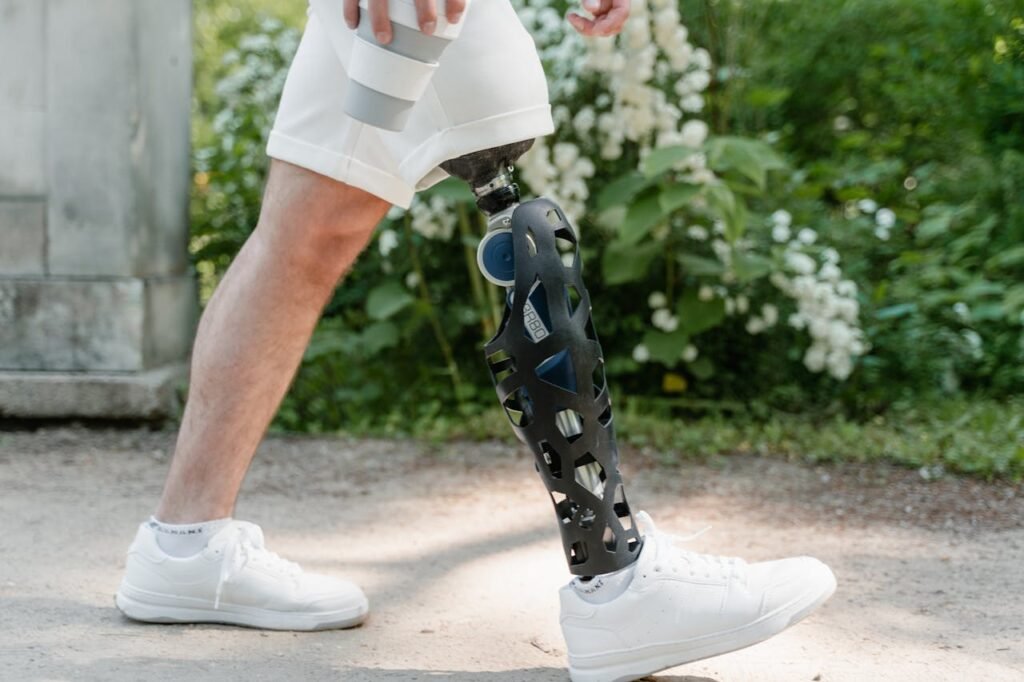
The world of prosthetics is evolving rapidly, with constant innovations aimed at improving comfort, usability, and personalization. The future holds exciting possibilities, including prosthetics with built-in sensors, AI-driven movement control, and even self-adjusting sockets that adapt to the child’s limb in real-time.
The Move Toward More Lightweight and Flexible Designs
As materials advance, prosthetic limbs are becoming lighter, more flexible, and more durable, allowing children to move naturally without strain. Future prosthetics will likely incorporate soft, skin-like materials that mold to the body, making them feel even more comfortable and realistic.
Prosthetics That Grow with Children
One of the biggest challenges parents face is frequent prosthetic replacements due to their child’s growth. Research is underway to create adjustable prosthetics that can expand as a child grows, reducing the need for frequent replacements and making the transition smoother.
More Accessibility and Affordability for Families
Advancements in 3D printing, modular designs, and cost-effective materials are making prosthetics more affordable and accessible, ensuring that more children can receive high-quality, comfortable limbs without financial burden. At Robobionics, we are committed to making cutting-edge prosthetic solutions available to families across India and beyond.
Final Thoughts
A prosthetic limb should never feel like a burden—it should feel natural, comfortable, and empowering. By ensuring the perfect fit, choosing the right materials, managing temperature and moisture, and addressing emotional concerns, children can experience greater comfort and confidence in their prosthetic.
At Robobionics, we are committed to helping children move freely, play confidently, and live without limitations. If your child is struggling with prosthetic discomfort, we can help with expert fittings, adjustments, and personalized solutions.
Looking for a more comfortable prosthetic for your child? Book a free consultation with our experts today and help your child embrace life without limits!



